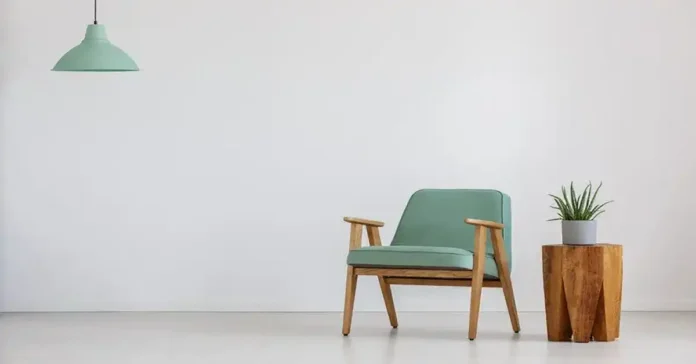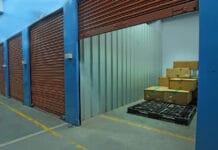In a world often obsessed with excess, the minimalist lifestyle stands out as a beacon of simplicity and purpose. This article delves into the profound benefits of embracing minimalism, guiding you on a transformative journey toward a more intentional and fulfilling life. Explore the philosophy of less is more, where reducing material possessions and focusing on essentials leads to clarity.
Through practical insights and real-life examples, you’ll discover how a minimalist lifestyle can declutter not just your physical space but also your mind. Join us and unravel the secret of a minimalist lifestyle with meaningful experiences and personal growth. Whether you’re curious about minimalism or ready to embrace its profound impact, this journey promises to inspire and empower you to create a life filled with purpose and contentment.
Ways in which Less is More
Less Stuff Means More Space
This is the most obvious thing that anyone in India will experience. With overcrowded public spaces, one tends to want homes that are spacious and free. But your home will also look like a public place if you keep buying and shoving items inside it. While it is good to get your home interiors done, but, there are several ways you can do it without overstuffing your home.
If you just turned around and felt ‘Hey, there are things here I don’t need’ then you just took the first step to the ‘less is more’ concept. Start off by identifying things that you do not need or seldom need. The ones you are sure you won’t need can be thrown away. At first, it may want to hold on to them but if you’ve never thought of these things till now, it is highly unlikely you will think in the future.
The things that you think you may need, but not so often, can be packed off to a self storage unit or room. Your items will be thoroughly secure and are accessible to no one but you.
A clutter-free home is one of the most essential things to have a sense of calm. The more items you see in every corner, it psychologically weighs heavy on you. Having more space in your home not only creates more physical space but it also brings a change in your mental wellbeing as well.
Less Work Means More Productivity
Another important part of the less is more concept is the idea that in order to be more productive or get more output, you need to be working 24*7. We’ve been always told that you need to work hard to achieve in life. While that is true, it comes with a caveat that you work must be smart. If there are things that can be automated, do it. If you can reduce some work, do it.
Do not allow yourself to be under the impression that the number of hours you have worked amounts to your productivity. Instead, measure your output. Set goals for yourself. Did you achieve what you set out to do? Rather than just spending unnecessary time on tasks, figure out ways to achieve the same in lesser time. That way you free up your mind faster and can work on other creative goals.
We tend to get so sucked into the system of work that it tends to take away our peace of mind, sleep, and even health. Your results matter, not the hours that you put into it.
Less Food is More Health
Yes! You read that right. Less food can actually be good for you. Let’s explain that first. We are not suggesting that you stop eating altogether, or go on a diet, or start fasting excessively. What it means is to weigh your food before you eat.
Supermarkets today are filled with food items that are just waiting for you to splurge on them. A lot of these foods are high-processed ones, refined items, and carry a lot of sugar. These are actually not of value to your body and at times, they are also expensive. They also have qualities that tend to get your hungry faster so you end up eating throughout the day.
This is also applicable to the food that you make. If you love your body and want to stay healthy for long, you will think twice before dumping two large dollops of butter in your pav bhaji.
Instead, switch to healthier food options. Eating whole foods that are rich in proteins, carbohydrates, minerals, and vitamins will keep you fuller for more hours while also preserving your health and wealth!
Less Distraction Equals More Creativity
Distractions in life can be physical and mental and both are harmful to our thinking process. Working in a cluttered environment can create a mental block that can prevent you from thinking straight. Having too many thoughts preoccupying your mind can also create hurdles in progressing in your work and life.
Whether it is your home, your work station, or your office space, try to remove all the unnecessary things around you. Only the things that you frequently need should be at an arm’s reach and everything else should go inside closets. If your office files take up too much space, send them off to a Self Storage India’s private room or locker where you can be assured they are protected and secure.
Whenever you are attempting to work and distracting thoughts come to mind, keep returning your focus to the task at hand. The more you let your mind know that your focus, the more it will help you retain it. When your mind and body are fully engaged in the current task, you can come up with creative and innovative results.
Less Choices Equals Better Decisions
There is a reason why famous personalities like Steve Jobs and Mark Zuckerberg always wear the same outfit. It is not because they lack money, but that they don’t want to get sucked into analysis paralysis. How many times have you gone into a trial room with 10 clothes and come out without having selected even one?
Taking decisions has become hard. We tend to pour over several options for hours and end up choosing nothing. We would rather not decide than take a bad decision. But it has come at a cost: your time and mental wellbeing.
The way to remove this is by forming habits. Start by figuring out a night in advance the outfit you want to wear and the breakfast you want to eat. This removes early morning decision making. Remove unnecessary apps from your phone and only keep the ones you want. Create routines for minor things so that you have more energy to focus on deciding for the bigger goals in your life.
Less Stress is More Happiness for Minimalist Lifestyle
The ultimate outcome of all of the above is that you have less stress in life. There is no stress to choose, decide, or work all the time. Instead, you can focus on quality items and time. This will bring you more happiness as you see that your goals are getting accomplished.
When you have less to worry about, it also reduces the emotional attachment you have to things. This comes in handy when an unfortunate disaster may strike or if you have to give something away. You can still maintain a sense of calm, happiness, and contentment without much stress. The more things you own, the more you are likely to feel worried about their safety, especially when you are away from them.
Final Words for Minimalist Lifestyle
Surrounding yourself with positive individuals while bidding farewell to negativity can significantly enhance your mental well-being. The lockdown imposed during the Covid-19 crisis has made many realize that thriving without the usual comforts is indeed possible. The essence of minimalism lies in gaining clarity. Life isn’t about rushing through it mechanically but finding purpose and focus. Aligning our mind and body towards meaningful goals is key.
Despite societal pressures urging more consumption and work, true security and happiness stem from deriving value in life. By reducing dependency on material possessions, we uncover the inherent value in what we already possess, leading to a more fulfilling existence.
FAQs for Minimalist Lifestyle
A1. A minimalist lifestyle is about living with less, focusing on what truly matters, and reducing clutter and distractions.
A2. Start by decluttering your space, prioritizing essential items, and being mindful of your consumption habits.
A3. Benefits include reduced stress, increased focus, financial savings, and a clearer sense of priorities.
A4. Yes, minimalism is about intentional living, so you can still enjoy hobbies and activities that bring you joy.
A5. Keep sentimental items that truly hold value and let go of items that no longer serve a purpose or bring happiness.
A6. Minimalism can lead to greater contentment by simplifying your life and reducing the burden of excess belongings.
A7. No, minimalism also involves decluttering digital spaces, schedules, and mental clutter for a more balanced life.
A8. Yes, families can embrace minimalism by involving everyone in decluttering, prioritizing experiences over possessions, and fostering open communication.
A9. Minimalism promotes conscious consumption, reducing waste, and lowering your environmental footprint.
A10. Minimalism is a journey that evolves over time, requiring ongoing reflection, adjustments, and mindful choices.








